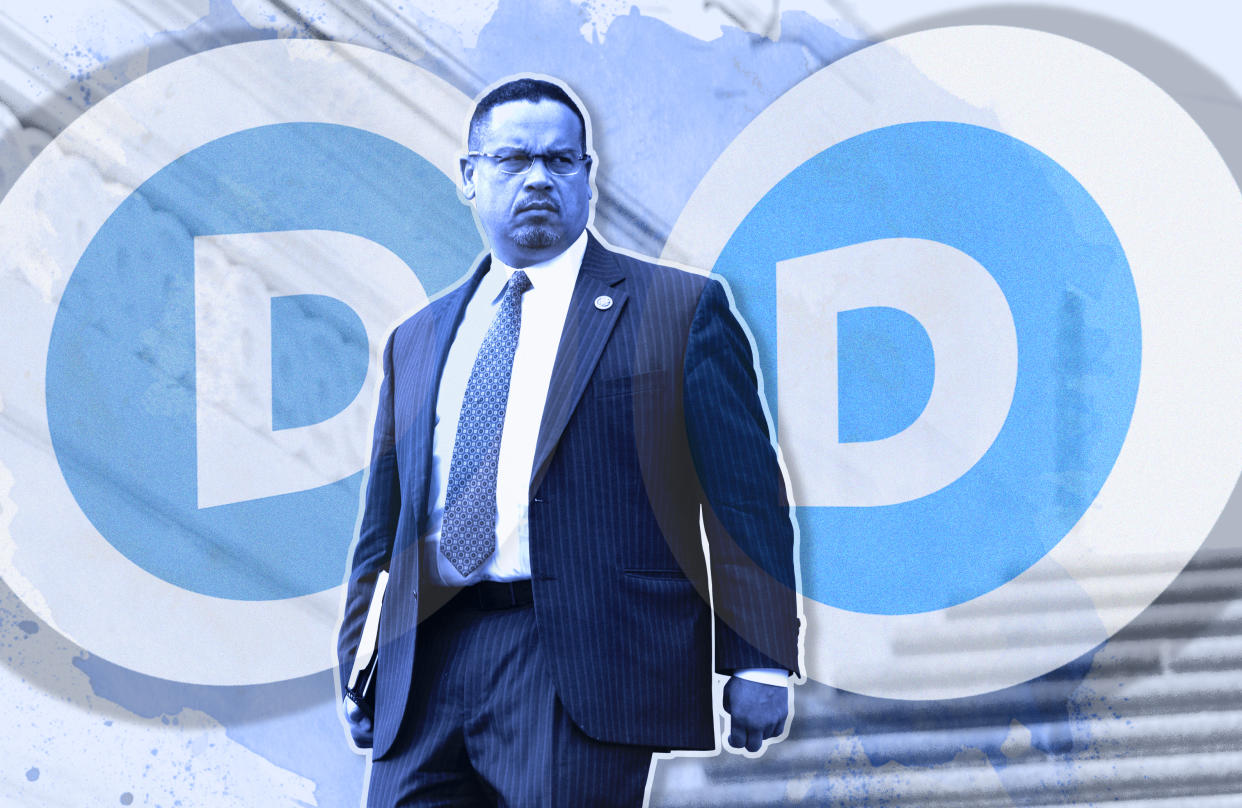Democrats can — and must — unite in November, says party deputy chair Ellison

WASHINGTON — The Democratic Party “is in tatters,” conservative columnist George Will said on Fox News five days after Donald J. Trump defeated Hillary Clinton in the presidential election. The House and Senate remained red too, and there were now 26 states with Republican trifectas, meaning the party controlled both chambers of the state legislature and the governorship. The number of Democratic trifecta states? Just six. “They are in danger of becoming,” Will said of the Democrats, “a regional party.”
But a year and a half later, Will’s prognosis isn’t standing up very well. A party supposedly relegated to oblivion in much of the country won a Senate seat in Alabama and the governorship of Virginia, as well as a House seat in western Pennsylvania in a district Trump carried easily. Increasingly, election watchers believe that November could see a Democratic surge that captures one or both houses of Congress. If Democrats pull it off, it would be the last half of the Trump presidency that is left in tatters.
Yet tensions remain within the Democratic Party, of both politics and policy. Republicans hope to exploit these divisions in order maintain their control of Washington. If they do so, it will be less because they have offered a coherent vision than because Democrats have failed to settle on a single effective critique of Trump and Trumpism.
The various factions of Democrats “can get along for the sake of flipping seats,” assures Rep. Keith Ellison, D-Minn. Ellison has the dual roles of vice chair of the Congressional Progressive Caucus and deputy chair of the Democratic National Committee, making him perhaps Washington’s most visible emissary from the progressive faction to the party mainstream.

In an extended interview with Yahoo News earlier this month, Ellison portrayed the Democratic Party as united in its political aims, even as its ideology is increasingly shifting leftward. “What Democrats need is to be fiercely in solidarity with each other,” Ellison said. “We need to embrace the fact that human solidarity is, in fact, resistance.”
This conversation took place during the primary season, which does not tend to invite solidarity. On May 15, a fresh round of primary contests saw progressives defeat moderates in Nebraska, Pennsylvania and elsewhere. “The far left is winning the Democratic civil war,” declared a headline in the Washington Post.
For Ellison, who was raised in a middle-class family in the Palmer Woods section of Detroit, this is less a battle than an awakening. “The electorate is more progressive than the people who represent them,” Ellison argues, noting that unlike most of his colleagues on Capitol Hill he is not a millionaire. Consequently, the “things that get discussed in Congress are things that well-to-do people discuss.”
Increasingly, though, a new spate of Democratic candidates is unashamed of embracing nakedly liberal positions. In Pennsylvania, two Socialists won primary races for the state legislature. These were not candidates who espoused a longing for democratic socialism of the Finnish variety but actual members of the Democratic Socialists of America. At the same time, their ideas did not involve storming the Winter Palace, reflecting what have become mainstream liberal positions: universal health care, free universal prekindergarten, taxes on the rich, better pay for the poor.
Much of the credit must go to Sen. Bernie Sanders, the Vermont independent who singlehandedly dragged the party in his direction. It was his growing clout within the Democratic Party that elevated Ellison to become deputy chair of the DNC. At the same time, the organization remains stocked with Clinton loyalists: The party’s chair, for example, is Tom Perez, who was under consideration as Clinton’s running mate.
“We have shifted the mission of the Democratic National Committee,” Ellison says confidently, citing the kinds of “investments” in downballot races that the DNC neglected to make in years past, leading to enormous Republican gains on the state level. This new iteration of the DNC, Ellison promises, is more responsive. “I am confident we are on the right track,” he says.

That track involves pointing out that President Trump presides over what Ellison calls “an economy with the worst inequality since the Great Depression.” Making that case, he believes, can end the debate about whether Democrats need to appeal to the white working class, which effectively handed Trump the election, and to its traditional base, including people of color. “This country is hard on white folks,” he says, then adds, “but if you’re a person of color, it’s a little tougher still.”
None of this is to say that the unification of the Democratic Party has been an entirely smooth project. The Democratic Congressional Campaign Committee, for example, has been attacking Houston-area candidate Laura Moser, who is running in the Democratic primary there on Tuesday. That has exposed the very divisions Ellison and others have tried to heal.
Ellison acknowledges that the Moser fracas was a mistake for the DCCC. “I would not have handled it that way,” he says. “Trust the voters, right? You cause more trouble for yourself when you pick winners and losers.”
But he is encouraged by signs that Democratic turnout could reach record levels in November. Ellison says that his own career in politics has taught him that races are not won by those who vote, but by those who don’t. Low voter enthusiasm doomed Hillary Clinton’s chances. To progressives like Ellison, her candidacy was a sign of how troublingly distant the Democratic establishment had grown from ordinary Americans.
“It shouldn’t have been close enough for the Russians to make a difference,” Ellison laments. “Or Comey.”
Read more from Yahoo News:



